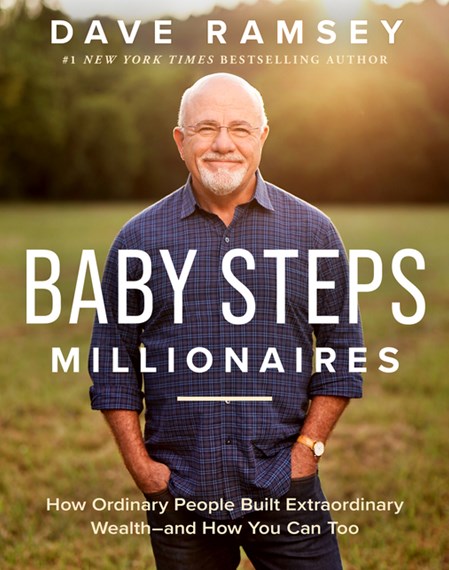Dave Ramsey’s approach to personal finance, particularly his 7 Baby Steps, has become a widely recognized method for achieving financial stability and success. Aimed at a diverse audience, the 7 Baby Steps can also be an invaluable guide for students, who are often managing their finances independently for the first time. Here’s a detailed exploration of Dave Ramsey’s Baby Steps tailored for students, along with insights into creating a budget, saving for an emergency fund, and building wealth for the future.
Step 1: Save $1,000 for Your Starter Emergency Fund
In the first step, Dave Ramsey emphasizes the importance of establishing a modest emergency fund. For students, this is crucial as it provides a financial cushion to cover unexpected expenses like car repairs or emergency travel. By saving $1,000, you create a buffer between you and life’s unpredictable moments, which can protect you from resorting to debt.
Step 2: Pay Off All Debt (Except the House) Using the Debt Snowball
The second step focuses on eliminating debt. Ramsey advocates the debt snowball method, which involves paying off debts from smallest to largest, regardless of interest rate. As you pay off each debt, you roll the payments you were making into the next smallest debt, creating a snowball effect. For students, this might mean tackling credit card debt, student loans, or car loans.
Step 3: Save 3–6 Months of Expenses in a Fully Funded Emergency Fund
After clearing debt, the third step is to expand your emergency fund to cover 3 to 6 months of living expenses. This larger emergency fund serves as a safety net for more significant financial challenges, such as loss of income or major medical bills. Students may adjust the total based on their particular needs and risk factors.
Step 4: Invest 15% of Your Household Income in Retirement
Investing for retirement might seem distant for students, but starting early can significantly impact the compound growth of retirement savings. Ramsey recommends putting 15% of your income into tax-advantaged retirement accounts, like a 401(k) or Roth IRA. This step is about long-term wealth building and taking advantage of youth and time.
Step 5: Save for Your Children’s College Fund
For those who plan to have children, Ramsey suggests beginning to save for their education. This step may be more relevant for young parents rather than students. However, understanding this step can help students appreciate the sacrifices their parents may be making or encourage them to plan for their future families.
Step 6: Pay Off Your Home Early
The Ramsey plan includes a mortgage rule that suggests owning your home outright is a form of financial freedom. Paying off a mortgage early reduces the amount of interest paid and can relieve a significant monthly expense. While this step is not directly applicable to most students, it’s a goal to keep in mind for future financial planning.
Step 7: Build Wealth and Give Generously
The final step is to continue building wealth and giving back to the community. This step reinforces the principle that financial peace isn’t just about personal comfort but also about having the capability to help others. For students, this step could translate into small acts of generosity or community service, sowing the seeds for a lifetime of giving.
Budgeting and Taxes
Creating a Dave Ramsey budget involves detailing income and expenses, ensuring that every dollar is allocated purposefully. For students, this might include managing scholarships, part-time job income, and necessary expenses. It’s also crucial to understand taxes (daveramsey tax) to manage money effectively, which may involve student-specific tax benefits or deductions.
Building Wealth
One core principle in Ramsey’s plan is that building wealth serves the purpose of creating security and the ability to contribute to the well-being of others (“one of the main reasons we build wealth is so that we can…”). Following the 7 Baby Steps can lead students toward becoming a “baby steps millionaire,” someone who accumulates wealth steadily through smart financial habits.
Additional Resources
Students can access various resources to assist with these steps. The Dave Ramsey website and the Ramsey+ login portal offer tools, articles, and courses like the “rasmey classroom.” For deeper understanding, students can read Dave Ramsey’s books in order, starting with foundational texts like “The Total Money Makeover.”
Conclusion Following the Dave Ramsey Baby Steps can help students set a strong financial foundation and prevent common pitfalls like high-interest debt and living paycheck to paycheck. By starting these habits early, students can pave the way for a future that’s financially secure and aligned with their values of generosity and stability.

